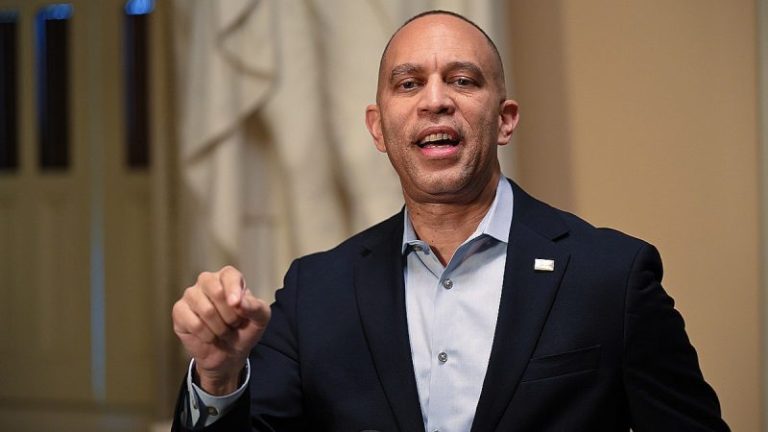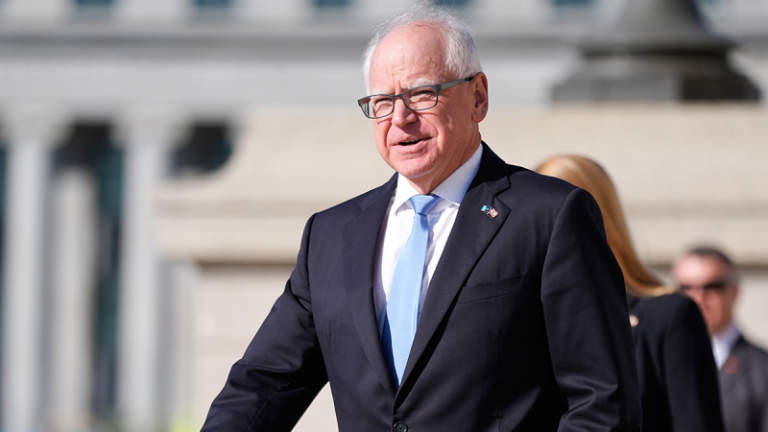The Wisconsin Institute for Law and Liberty (WILL), a conservative legal group, is requesting the Trump administration remove race from the Centers for Disease Control and Prevention’s (CDC) ‘Social Vulnerability Index,’ which the groups claim is being used by liberal localities to steer funds to communities based on race.
WILL refers to what has been taking place as ‘DEI redlining’ in its letter to Trump administration officials at the CDC and the Health and Human Services Department (HHS). It says the tool helps localities prioritize Black and Hispanic neighborhoods over White neighborhoods due to racial composition, independent of any other factors, like poverty.
‘In the name of ‘racial equity,’ local officials prioritize certain geographic areas for public safety, parks improvements, public swimming pool closures, broadband access, safe drinking water, and disaster assistance,’ the letter to HHS Secretary Robert F. Kennedy Jr. and CDC Acting Director Jim O’Neill stated. ‘And these governments point to CDC’s SVI as the reason for their race-based spending.’
Among various examples the group highlights is Milwaukee, Wisconsin’s county parks department, which states on their website that the Milwaukee Parks Foundation ‘works to reduce or eliminate racial disparities through investments and activation of park spaces that rank high on the Milwaukee County Park’s Equity Index.’
Meanwhile, an inter-office communication from 2024 obtained by WILL, updating officials on the ‘Parks Equity Index,’ the Milwaukee Parks Foundation points out that ‘the CDC’s Social Vulnerability Index’ is part of its ‘weighted composite data analysis’ meant to help streamline decision-making within the department.
‘In other words, parks in white neighborhoods are de-prioritized, while parks in non-white neighborhoods are prioritized,’ WILL argues in its letter to HHS and the CDC.
To show the real life consequences of this, the conservative law group pointed to a community pool that has been closed for the past few years in a local town that is 90% White. According to local media reports, the pool needs about $600,000 in repairs, but WILL said those will likely never come to fruition, since the community ranks low on the parks department’s ‘Racial equity Index.’
Milwaukee County Parks Department came out with a study indicating it was considering shutting down the pool or transferring it to be run through a public-private partnership similar to other pools in the area, according to local outlet Urban Milwaukee.
‘According to Milwaukee County, Hales Corners ranks 128 out of 153 parks in Milwaukee County, with a 3 out of 10 score and a 0.33 SVI score. So the kids and families in Hales Corners will lose their swimming pool, which has been a community fixture since 1968, because the residents are too white,’ WILL argued in their letter. ‘Race-based SVI encourages the use of race for its own sake, or at best, as a proxy for other elements already accounted for within the SVI.’
Fox News Digital reached out to the Milwaukee Parks Department for comment but did not receive a response in time for publication.
WILL pointed to numerous examples of case law determining such activities are unconstitutional, including the recent Students for Fair Admission case that resulted in an overhaul of affirmative action rules in higher education.
Besides Milwaukee, WILL highlighted examples from California’s Community Development Block Program, run by the state’s Department of Housing and Community Development, which the conservative law group alleges is using the CDC’s SVI index to help prepare for, and respond to, natural disasters. Connecticut’s ‘Drinking Water State Revolving Fund,’ which helps maintain public water systems and assigns a ‘Social Vulnerability Index score’ to each project, was listed as well.
Cook County, in Chicago, was also among those listed. Their ‘Comprehensive Broadband Planning Initiative’ says explicitly on its website that it ‘prioritizes communities with the highest Social Vulnerability Index (SVI) in Illinois.’










